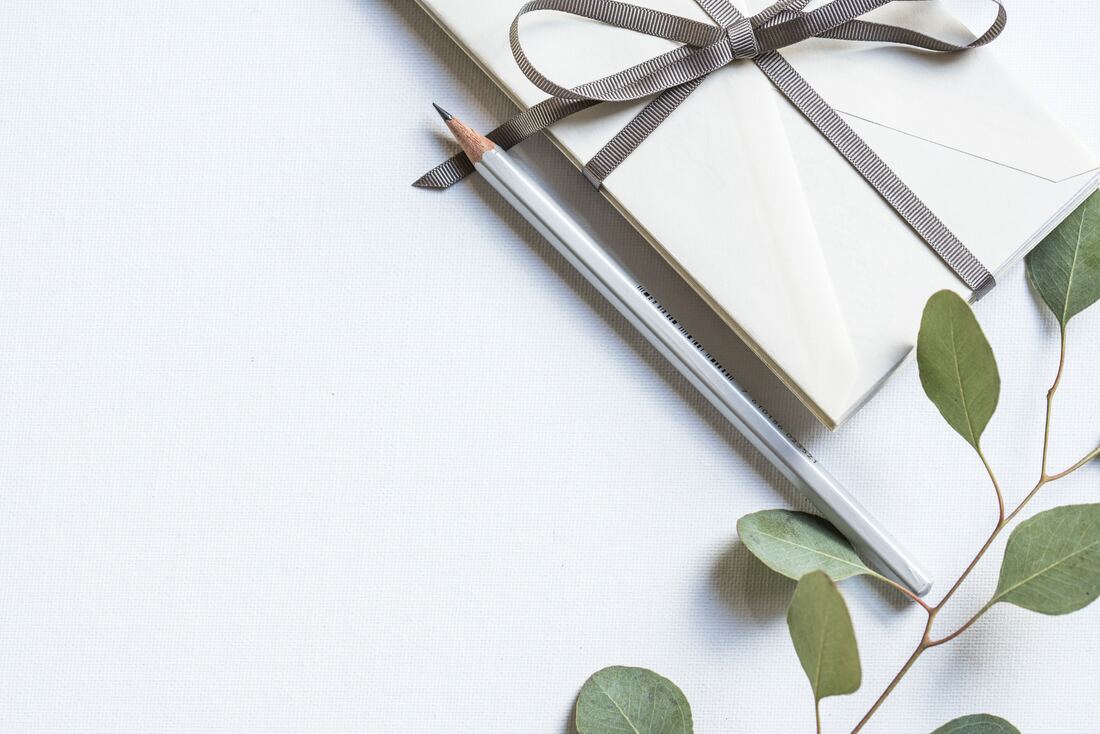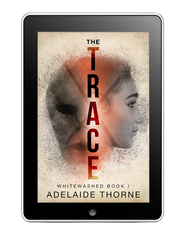|
So, you wrote a book.
The first thing every friend, family member, and fan will assume? You stole everything from real life because you're an unoriginal fraud. My response to that, after years of defending my honor, is... FINE. I'm calling their assumption and saying yes. I did steal some things. Why? Because I could. Because real life inspires me. Because nothing in this world is truly ours. You might be surprised at the things I stole and the things I didn't. Allow me to enlighten you. NAMES:
CHARACTERS:
SCENERY:
So, there you have it. Feast your eyes on my thievery. Now it's your turn to tell me what YOU'VE stolen!
3 Comments
Why do we write? Well, for the same reason that we read: we believe in stories. My story started cooking in my head long ago, but I never had the will to do anything about it—until someone believed in me. A pinch of belief mixed with an ounce of determination (and, most notably, eight million heinous drafts) can produce a book.
It all comes back to the gap in my bookshelf. A slit between my books judged me every day, grumbling, “Why haven’t you filled me yet?” My excuse typically had something to do with time. I never seemed to have enough of it. To any writer struggling to put words on paper, time does exist; you only have to grab it when it finds you. So, about that bookshelf gap…. It demanded that I fill it with the story I’d always wanted to read, the story no other book could quench. This story of mine revolved around a girl whose name shifted and bounced, whose personality wavered as I grew. Her authenticity, however, remained. I often took issue with the YA protagonists of my youth—too bland, too faultless, too accepting of the mantle thrust upon them, too hardcore, or too “Why me?” My own brand of perfect protagonist floated in the “Just hang out there until I say you can leave” part of my brain. This protagonist struggled to jump right into the “conquering hero” mold; she could be cringe-worthily cheesy and awkward; she had faults that she tried ignoring; she got scared when the time to be heroic came; and, she was human. By that I mean ordinary, flawed, and most of the time unsure whether or not any of her efforts would make an impact. This protagonist floated in and out of the ideas my brain conjured. One day, she found her story and stayed put. Take a covert operation of powerful humans, an army of even more powerful enemies, an ordinary girl who suddenly changes, a best friend who needs protecting, and you’ve got the stirrings of Ella’s story. It’ll twist, characters will make mistakes, truths will find the light, and bad guys will reveal their humanity. This story might make you groan, laugh, grimace, cry, roll your eyes, or throw something—like the book itself. Hey, paperback is durable; it can withstand a few hurls against the wall. Most importantly, though, The Trace will nudge something in you—be it good or bad—because it’s a story and that’s what stories do. The Trace is Ella Kepler’s tale—no doubt about that—but she’s only a fragment in a plot that expands the more she uncovers. She grows, she retrogrades, she falls, and she falls again—and the story around her continues, because the world will turn, even if we stop. My hope is that Ella’s world will turn with you. *This post was originally published at Evolved Publishing's website here* So I mentioned before that my mom was a daydreamer. When her family members caught her zoning out, they would say that she was "Playing Bobby." No idea where that expression came from, but I do know what Playing Bobby means. Growing up, I assumed everyone daydreamed to the extent that I did. It wasn't until early adolescence that I noticed that none of my other friends daydreamed anymore. In fact, they'd never daydreamed like I had. For a while, I just felt like a weirdo. I was plagued by the desire to do something I should have stopped doing years earlier. Somehow, the topic came up with my mom, and that was when I realized I wasn't alone. She knew what daydreaming was, too. Lots of writers probably Play Bobby, she told me. That was where they got their stories. It was then that I became proud of my imagination and didn't resent it. So, what the heck does that even mean, and why can't you just call it "daydreaming" instead of talking about some guy named "Bobby" who none of us knows? Well, for starters, it doesn't mean that I can't distinguish between what's real and what's not. I don't believe I have mystical powers. I may be a proficient cat whisperer, but that's not imagined—that's real. Just ask my former piano teacher's cat, who only came downstairs when I came over for lessons. It wasn't because he wanted to tell me to stop hurting his ears; it was because he liked me. Thanks, Beethoven. Basically, it just means that I imagine a scene in my mind—say, two people arguing—and watch it unfold like a movie. It actually helps me solve conflicts, though sometimes I get carried away. When the conflict concludes with the other person sobbing and begging for understanding and forgiveness, I know I should probably try to be more realistic.
Before I write a scene, it helps if I close my eyes for a few minutes and imagine the scene that I want to write. When I don't do this beforehand, I usually write really crappily. (Yes, that's a word.) When I'm trying to write a dialogue scene, I might close my eyes and hover my fingers over the keyboard, typing the conversation as it happens in my head without pausing to add facial expressions or dialogue tags. So it might look like: I’m not a very good leader. That’s all right. You can’t do everything. But I want to help. I want to feel useful. Why do you have to lead in order to be helpful? Being a leader is just one role someone can play. There are other jobs of equal importance that need doing. Leading seems like the best one, though. ^^Most of my dialogue scenes look like that until I go back and flesh them out. (Speaking of writing dialogue, I've been having so much trouble writing dialogue scenes lately, because I'm torn between this paranoia of using too many dialogue tags/descriptors, or having too much dialogue without enough beats. That's a conversation [ha ha, get it?] for another post, I suppose.) Anyway, I daydream a lot. My husband doesn't really get it, but then again, he also rarely dreams while sleeping. I, on the opposite hand, have multiple, vivid dreams each night, and I almost always remember them upon waking. There must be some connection between daydreaming and night dreaming. Do you daydream a lot? Will you join the Bobby Club? Let me know! My dad calls me "Pickle." While that may be irrelevant to everything I have ever said/will say, it sounded like a nice introduction to a post on the juices that get us writers going. Creative juice is a strange and intangible thing, despite the fact that everyone talks about it like it's this completely understandable and real thing. What is creative juice? Why do we call it "juice" and not "liquid" or "sauce" or "potato?" Would it really sound that weird to hear people say, "My creative potato is really cookin' today" ? Maybe. At any rate, for some unbeknownst reason, the word is juice. Once upon a time, a man wearing a hooded garment rubbed his beard and declared (whilst stirring a cauldron of toad liver and rooster feet) that the inspiration behind every writer would henceforth and forever be called juice.
Every writer will tell you what inspired his or her latest story. Every reader wants to know. A story about a small man with really hairy feet, off to steal from a dragon? What brought that on? Inspiration is paramount to a successful story. Without inspiration, a writer has to yank the words from his brain, rather than control their spillage from his heart. We all need inspiration, no matter what we do. Everyone knows this. For a little bit, I'm going to talk about my favorite juices. I'm not one of those people who can write while listening to music, something I've mentioned before. However, I can listen to music before writing if I want to set the mood. Upon exploring the websites of authors, I've found that they typically list what is currently on their "bookshelf" or "playlist." I have decided that it is time that I graduate into the world of playlist-ing. Since I'm still in the Evolution zone, these are all songs that inspire the Evolution mood. Here are some of my mood-setting tunes. Some of them might be embarrassing. And some of them might not make any sense. Don't judge.
I feel the need to categorize these songs by the mood that I'm trying to achieve. So, for epic, serious, dramatic, intense moods (like for tense scenes), I like these songs:
For happy (dare I say it: lovey) emotions, I like these songs:
For nostalgic feelings, I got these:
Sometimes I'll be driving and a song will come on. "No! I'm not ready for this mindset! Ah...resistance is futile." |
Whitewashed Book ICategories
All
|


 RSS Feed
RSS Feed